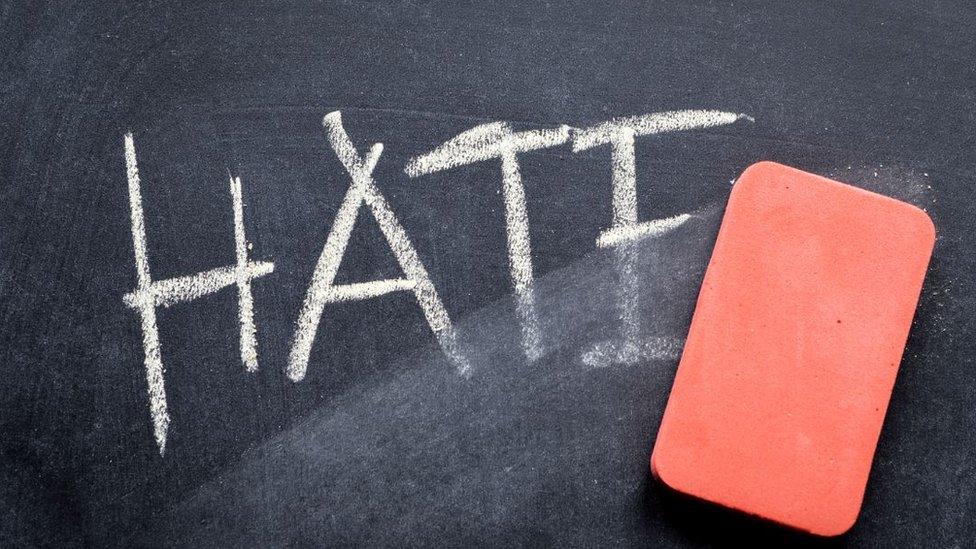Free speech row over new hate crime bill in Scotland
- Published
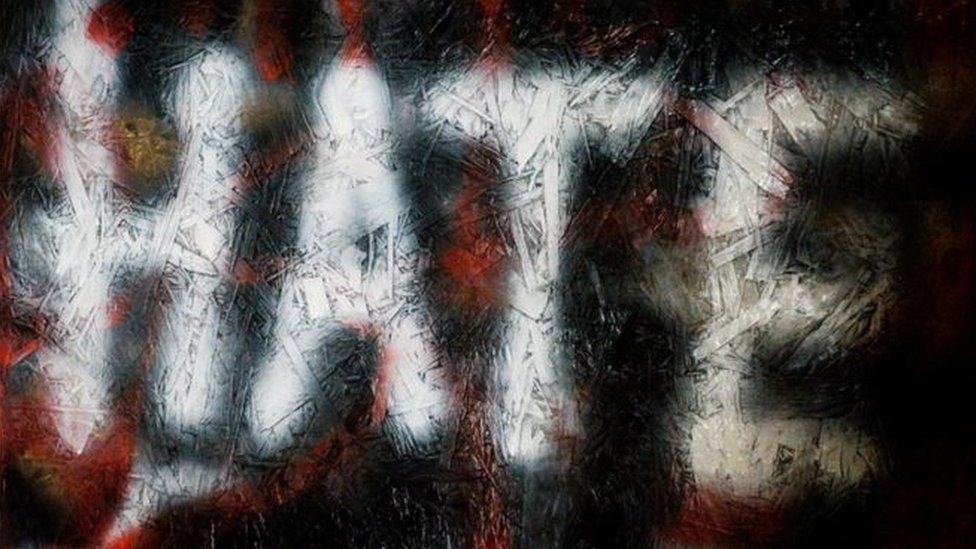
A public consultation has closed on changes to Scotland's hate crime laws, which opponents say could have a damaging effect on free speech.
Ministers argue the bill offers great protection for victims at a time when the number of cases is on the rise.
Scottish Labour's James Kelly said he had 'serious reservations', especially over the offence of stirring up hatred.
But Scotland's justice secretary said people's freedom of expression was not under attack.


As you are reading this news story on the BBC news website I am going to hazard a guess that you probably believe that freedom of expression is a fundamental human right. And that you think without the right to free speech many other freedoms may be threatened?
You would probably also agree that it is wrong actively attempt to stir up hatred against people based on their religion, gender or sexual orientation, with the possibly violent consequences such behaviour can inspire.
If you agree with all of the above you may feel a little sympathy for the Scottish government and its attempts to update the nation's hate crime legislation.
And the storm of protest that has accompanied the plans to make it a criminal offence to "stir up hatred" against anyone based on their age, disability, religion, sexual orientation or transgender identity.
It is quite an achievement for the government to have united the Catholic Church and the National Secular Society in opposition to the plans - along with academics, playwrights and newspaper columnists who all say they fear the proposed legislation could pose a threat to their freedom of speech.

Opponents claim these laws could see JK Rowling in the dock for saying what she thinks about trans rights
Opponents claim that, if passed in parliament, these laws could see JK Rowling in the dock, facing a seven-year prison sentence for saying what she thinks about trans rights. Comedians could become too frightened to dare make a joke about "a Scotsman, an Englishman and an Irishman" walking into a bar.
While the minister responsible for the bill says that free speech is not unfettered right at the moment and that this legislation will extend protection to minority and vulnerable groups against being targeted for hatred.
Is it possible to be on both sides of this argument? That may where many people find themselves. Agreeing with the aims of both the proponents and the opponents of the hate crime bill.
No-one is suggesting the government is deliberately intending to stifle free speech. But many fear that could be the result if the bill is passed as currently drafted.
The public were invited to make their views known to the Scottish parliament's justice committee before midnight on 24 July.
The government says it is prepared to consider making changes to the bill before it is finally passed by parliament.

Nervous breakdown
Amanda Millar, president of the Law Society of Scotland, said it was right that laws provide a clear message that hatred should have no place in our society.
"However, we have significant reservations regarding a number of the bill's provisions and the lack of clarity, which could in effect lead to restrictions in freedom of expression, one of the foundations of a democratic society.
"We have real concerns that certain behaviour, views expressed or even an actor's performance, which might well be deemed insulting or offensive, could result in a criminal conviction under the terms of the bill as currently drafted."
Scottish Labour criticised the offence of stirring up hatred and accused ministers of failing to learn the lessons of the repealed Offensive Behaviour at Football Act.
The party's justice spokesman James Kelly said there is "a significant divergence" from similar law in England and Wales where intent is required for a person to be criminalised for behaviour which another finds insulting.
He added: "Under the current proposals, the law here would not require this intent to be present - which sets an alarming legal precedent and could result in the criminalisation of expressions of religious views."
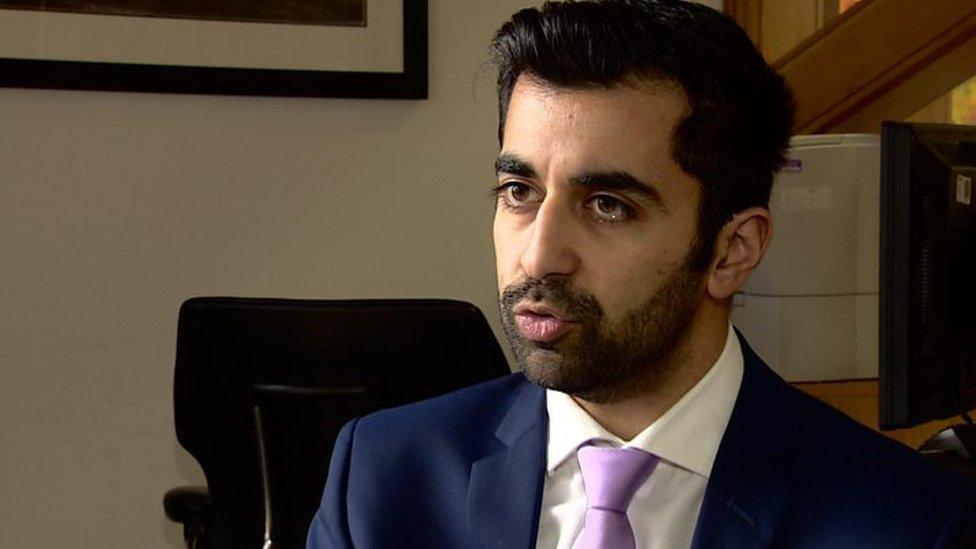
Scottish Justice Secretary Humza Yousaf denied the bill will curtail free speech
The Scottish government said freedom of expression provisions in the bill made clear that criticism of religious beliefs or practices is not, in itself, conduct that constitutes a criminal offence.
It also said that for one of the new offences of stirring up hatred to be committed, behaviour must be threatening or abusive, with an intent to stir up hatred or a likelihood that hatred will be stirred up.
It said insulting behaviour did not feature in the new stirring up hatred offences being proposed.
Scotland's justice secretary said the bill would include clauses to make it "absolutely explicit that people's freedom of expression is not under attack".
Humza Yousaf told BBC Scotland: "I don't accept that this curtails free speech at all. Free speech in itself is never an unfettered right.
"We don't accept that people can go on speaking tours, saying that women should be raped and children should be kidnapped - we just don't accept that freedom of speech is completely unfettered.
"What this does is create a protection for, particularly minority groups and vulnerable groups in our society, against being targeted for hatred and being targets for hatred."
Mr Yousaf added that the bill set the bar "very high" as anything deemed threatening or abusive and likely to stir up hatred must be proved beyond reasonable doubt.
Hate crime rise
The Hate Crime Bill, external follows an independent review by judge Lord Bracadale, external, in which he recommended that age and gender should be added to hate crime legislation.
People are currently protected by specific laws on the basis of: disability; race (and related characteristics); religion; sexual orientation and transgender identity.
The new bill adds age to the list and would allow sex to be added at a later date.
A standalone offence of misogynistic harassment is also being looked at.
Last month official figures revealed all categories of hate crime in Scotland are increasing.
Racial crime is the most common reported hate crime, accounting for 3,038 charges in 2019-20.
This was an increase of 4% on the previous year, although still 33% lower than the peak recorded in 2011-12.
Mr Yousaf said the Scottish government was determined to work towards creating "zero tolerance" of hate crime.
- Published11 June 2020

- Published12 June 2020
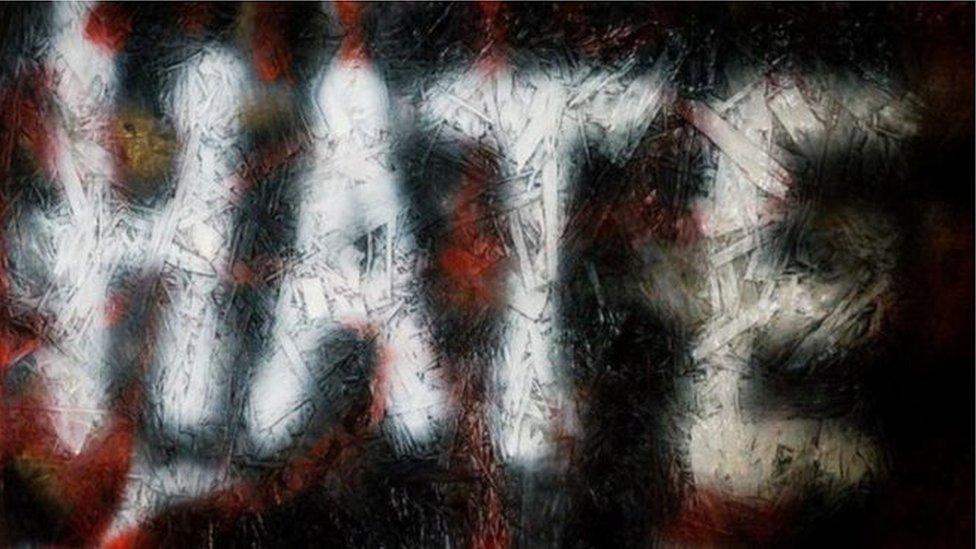
- Published24 April 2020
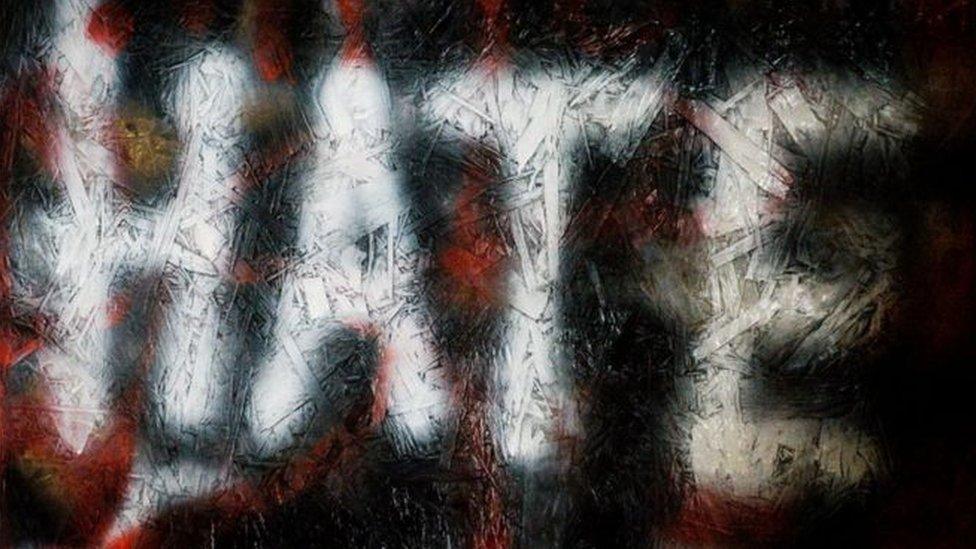
- Published15 June 2018
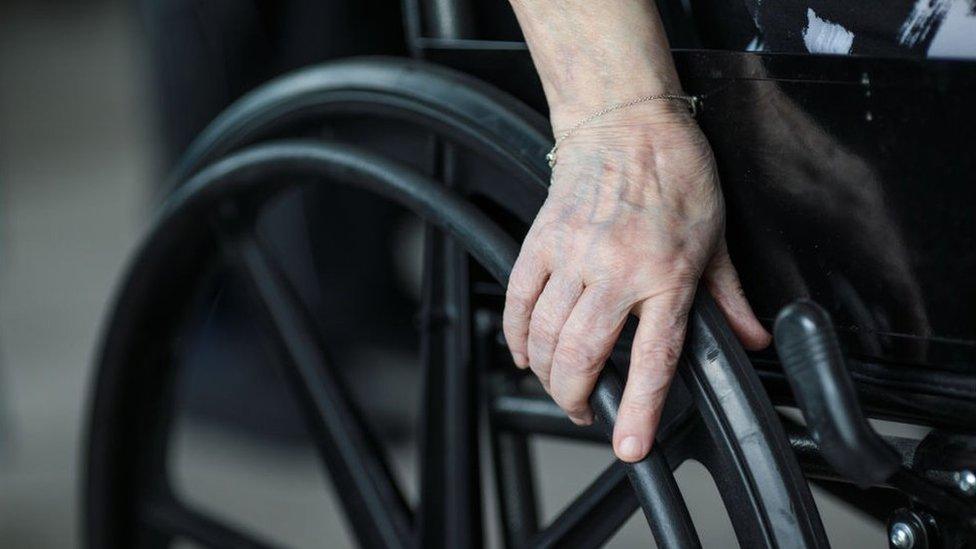
- Published17 March 2018
